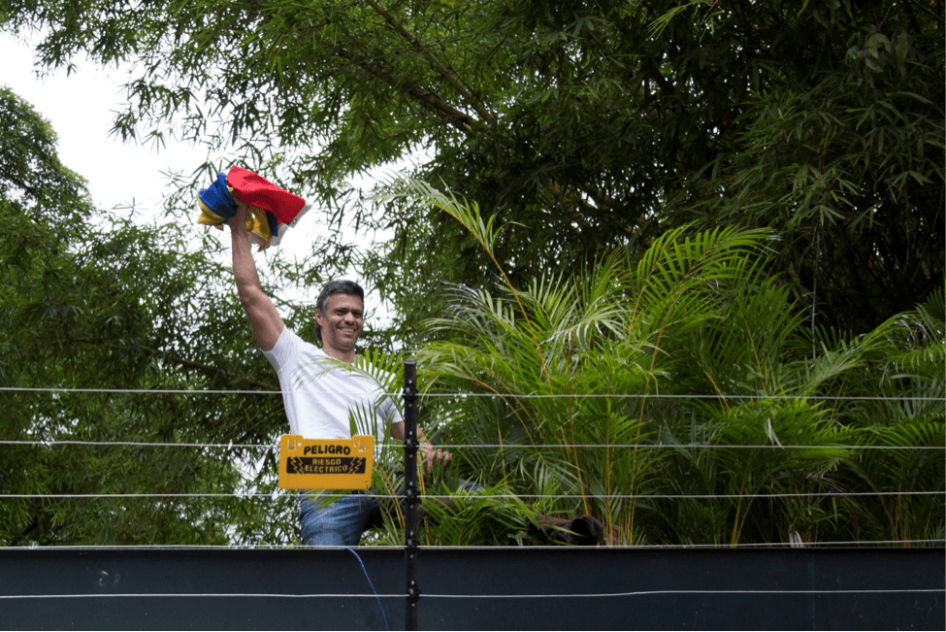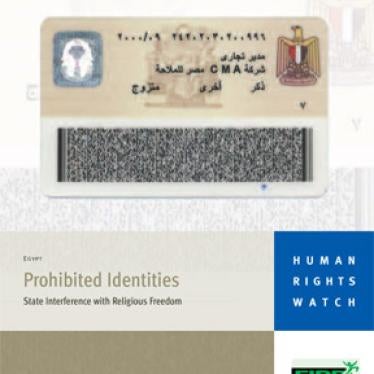(Washington, D.C.) On July 8, the government of President Nicolás Maduro of Venezuela delivered its most well-known political prisoner, Leopoldo López, to his home. The Supreme Court, which Mr. Maduro effectively controls, said in a one-paragraph statement that it granted Mr. López house arrest on “humanitarian grounds” because of his “health situation.” It also mentioned “irregularities in the distribution of the case to a criminal court.”
The popular leader of Voluntad Popular, a centrist political party, and one of Mr. Maduro’s fiercest critics, Mr. López was arrested in 2014 at the beginning of a brutal crackdown on the huge anti-government protests that he had actively promoted. He was sentenced to nearly 14 years in prison, charged with inciting violence during the protests — false allegations based on fabricated evidence, as a prosecutor in the case told me after fleeing the country.
Mr. López’s release from prison is, undoubtedly, happy news for his family. His wife, Lilian Tintori, as well as his children, sisters and parents, suffered for more than three years as Mr. López languished in the Ramo Verde military prison, subjected to long periods of isolation. The family has also been subjected to countless humiliations and abuses. For the past 90 days, Mr. López had been denied access to his lawyers.
It’s also a triumph for the tens of thousands of protesters who have taken to the streets daily since late March to show their discontent with the government’s undemocratic rule — and for the growing number of Latin American leaders calling for the release of political prisoners and an end to repression against these protesters.
Since Mr. López is Venezuela’s most prominent political prisoner, the government may want to present his “release” as evidence that the country’s situation is improving, that international criticism is unwarranted and that the demands of protesters are illegitimate.
That couldn’t be farther from the truth.
Mr. López is home, but he is not free. He’s still under house arrest. So is the former mayor of Caracas, Antonio Ledezma, who has been under house arrest for more than two years. Another mayor, Daniel Ceballos, also imprisoned after a politically motivated prosecution, was granted house arrest for a year and later was locked up again. Other political leaders, including the former presidential candidate Henrique Capriles Radonski, have been arbitrarily disqualified from running for office for several years.
Venezuela has more than 400 political prisoners, according to the Venezuelan Penal Forum, a nonprofit group that provides legal representation to detainees. More than 350 civilians have been prosecuted by military courts — a practice of the Latin American dictatorships of the ’70s that violates both Venezuelan and international law. Many are being held in military prisons, high-security prisons or intelligence services installations.
Security forces, in collaboration with armed pro-government groups called “colectivos,” continue to brutally repress anti-government demonstrations. Since early April, more than 90 people have been killed, more than 1,500 injured and more than 3,000 detained in the context of demonstrations. Authorities at the highest level bear responsibility for pervasive, serious abuses being committed under their watch, including cases of torture.
In late June, Mr. Maduro declared that his government would never give in to its opponents and that any future political defeat would result in violence. “What we couldn’t do with votes,” he warned, “we would do with arms.”
A few days ago, his government allowed armed thugs to assault the National Assembly and beat up opposition legislators in broad daylight.
The crisis in Venezuela today is no longer a conflict between two opposing political groups or ideologies. It is a confrontation between a repressive regime that violates the fundamental rights of its people and openly disregards the most basic democratic guarantees, and millions of Venezuelans, including many former government supporters, who oppose it.
Mr. López’s release may be evidence that the government feels its position is weakening. Most likely in response to the growing pressure in the streets and abroad, even the previously loyal attorney general, Luisa Ortega Díaz, has openly criticized Mr. Maduro and the repression. Ms. Ortega, precisely because of her criticism, is today facing the prospect of an imminent dismissal from office.
Mr. López’s move to house arrest is a major concession by the government. But it’s almost certainly a tactical retreat, intended to blunt criticism and deflate internal and international pressure. Now is not the time to be lulled into complacency. On the contrary, the governments throughout the region that have been calling for an end to the repression — including Argentina, Brazil, Chile, Mexico, Peru and the United States — should redouble their efforts.
Specifically, they should call on the Maduro administration to authorize a visit by representatives of key governments in the region and of the Inter-American Commission on Human Rights to meet with political prisoners and assess the country’s human rights crisis. And they should insist that all abuses — including the killing of protesters and the jailing of political prisoners — are properly investigated and that those responsible are brought to justice.
A clear message that those responsible for human rights crimes will be held accountable could dissuade members of the police and military from continuing with the spiral of violence and repression. And it could hasten the day when Mr. López and Venezuela are finally set free.








